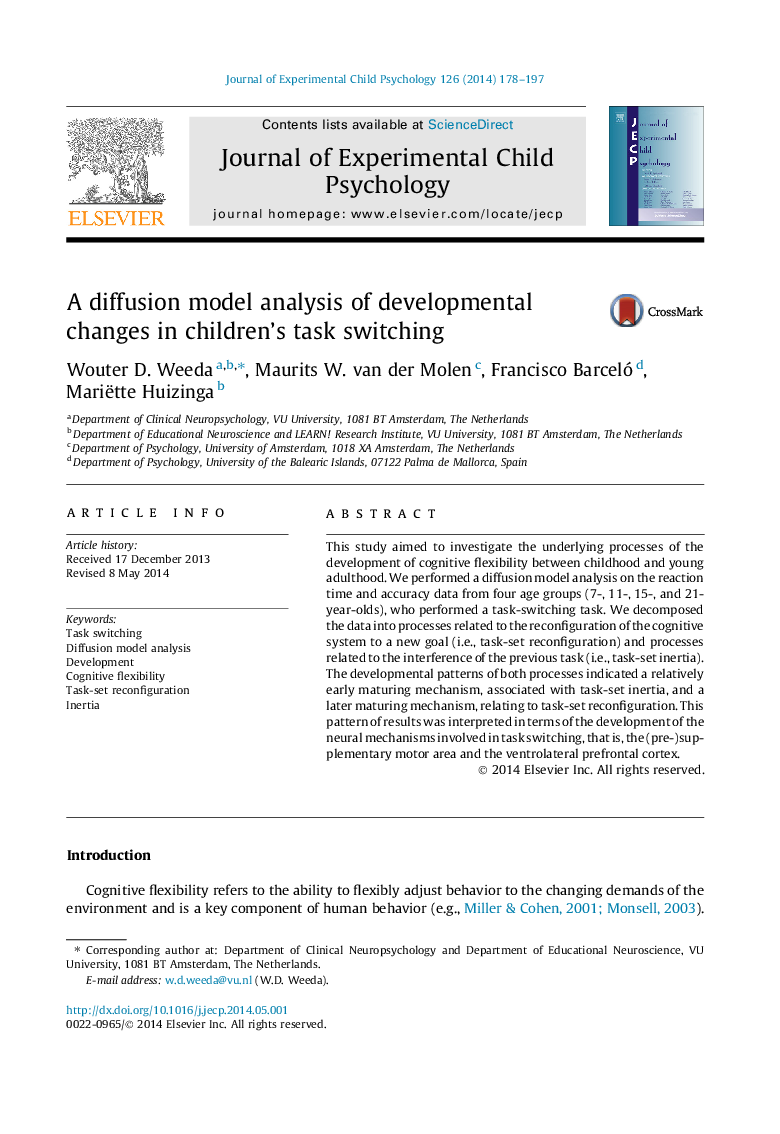| Article ID | Journal | Published Year | Pages | File Type |
|---|---|---|---|---|
| 7275367 | Journal of Experimental Child Psychology | 2014 | 20 Pages |
Abstract
This study aimed to investigate the underlying processes of the development of cognitive flexibility between childhood and young adulthood. We performed a diffusion model analysis on the reaction time and accuracy data from four age groups (7-, 11-, 15-, and 21-year-olds), who performed a task-switching task. We decomposed the data into processes related to the reconfiguration of the cognitive system to a new goal (i.e., task-set reconfiguration) and processes related to the interference of the previous task (i.e., task-set inertia). The developmental patterns of both processes indicated a relatively early maturing mechanism, associated with task-set inertia, and a later maturing mechanism, relating to task-set reconfiguration. This pattern of results was interpreted in terms of the development of the neural mechanisms involved in task switching, that is, the (pre-)supplementary motor area and the ventrolateral prefrontal cortex.
Related Topics
Social Sciences and Humanities
Psychology
Developmental and Educational Psychology
Authors
Wouter D. Weeda, Maurits W. van der Molen, Francisco Barceló, Mariëtte Huizinga,
